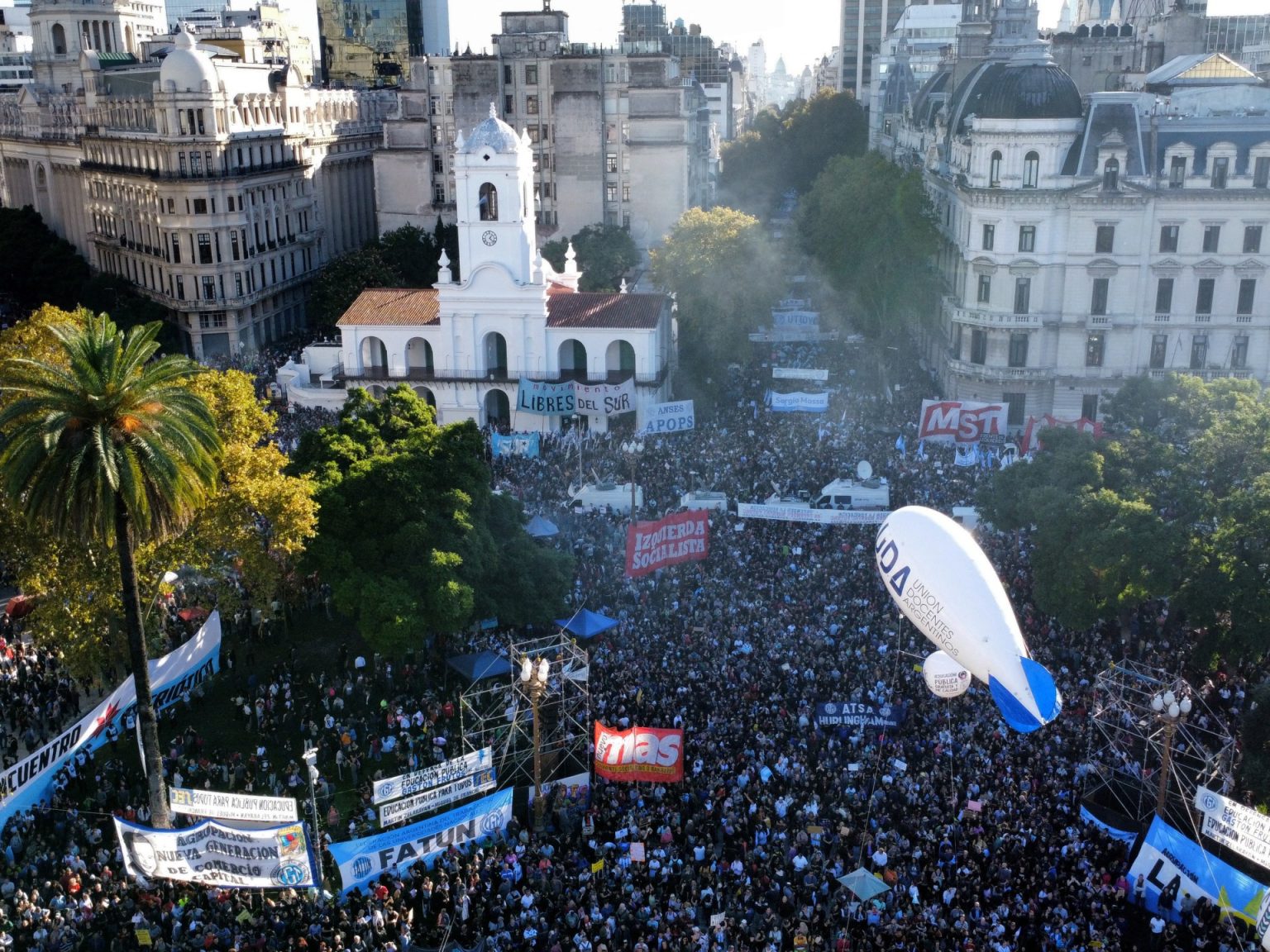President Milei’s radical austerity measures in Argentina have sparked massive protests across the country, with students, university professors, trade unions, and opposition political parties joining forces against education spending cuts. The demonstrations, which were some of the largest since Milei took office, saw hundreds of thousands of people rallying against the impact of his policies on public universities. Aerial footage showed a sea of protesters occupying the center of Buenos Aires for hours, with similar scenes in other cities.
The University of Buenos Aires claimed that over 500,000 people participated in the protest in the capital alone. Milei, who ran on a platform of cutting public spending, has been implementing measures to shrink the government in the face of economic challenges. This includes shuttering ministries, defunding cultural centers, laying off state workers, and cutting subsidies. Despite facing opposition from various sectors, Milei defended his radical approach as the country achieved its first quarterly fiscal surplus since 2008.
The education system in Argentina, known for its quality and free public universities, has become a focal point of the protests against Milei’s austerity policies. The government recently slashed the budget of public universities by 71 percent, leading to concerns about the institutions’ ability to continue operating. With inflation rates soaring to nearly 290 percent in Argentina, university officials warn that they may be forced to shut down, leaving students stranded mid-degree.
Ricardo Gelpi, the rector at the University of Buenos Aires, expressed concerns about the university’s ability to function with such drastic funding cuts. Nobel Prize winners and former Argentinian presidents have been produced by the UBA, highlighting the importance of preserving quality education in the country. Nobel Peace Prize winner Adolfo Perez Esquivel emphasized the significance of defending the public, open, and free university system, which is considered a fundamental right by many in Argentina.
The protests against the education spending cuts reflect a broader dissatisfaction with Milei’s approach to governance and fiscal policy. Critics argue that the austerity measures are jeopardizing the future of higher education in Argentina and undermining the country’s achievements in providing free and quality university education. As the government continues to pursue its agenda of reducing public spending, tensions are likely to persist between Milei’s administration and various sectors of society, including students, professors, trade unions, and political opposition.
The demonstrations serve as a powerful message to the government about the importance of investing in education and prioritizing the future of the country’s youth. As Argentina grapples with economic challenges and high inflation rates, the need to protect public universities and ensure access to quality education for all remains a critical issue. The protests highlight the resilience and determination of the Argentine people in defending their rights and advocating for a better future for themselves and future generations.















